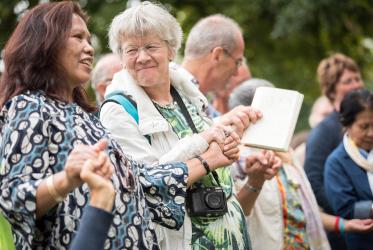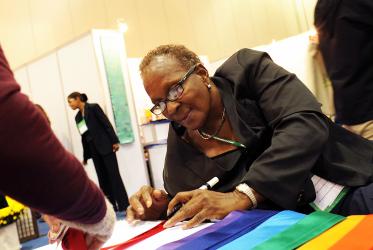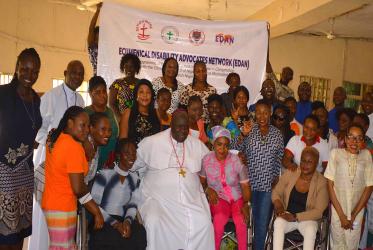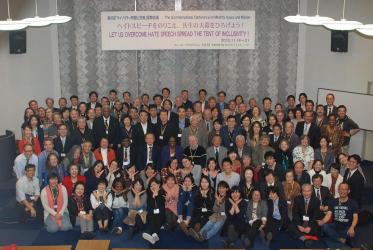Displaying 1 - 20 of 28
Promoting human dignity through art
06 September 2022
Advancing a disability-inclusive response to COVID-19
21 April 2020
East African communities discuss disability, theology
17 November 2016
Japanese churches discuss minority issues
01 December 2015
Churches to be more inclusive of persons with disabilities
16 October 2014
HIV/AIDS: "We can't be silent"
19 February 2008












